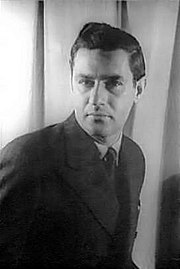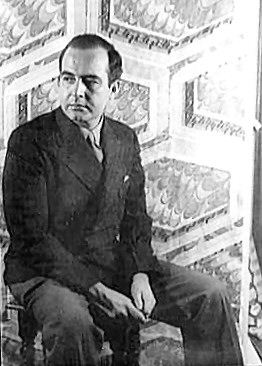
Samuel Osmond Barber II was an American composer, pianist, conductor, baritone, and music educator, and one of the most celebrated composers of the mid-20th century. Principally influenced by nine years' composition studies with Rosario Scalero at the Curtis Institute and more than 25 years' study with his uncle, the composer Sidney Homer, Barber's music usually eschewed the experimental trends of musical modernism in favor of traditional 19th-century harmonic language and formal structure embracing lyricism and emotional expression. However, he adopted elements of modernism after 1940 in some of his compositions, such as an increased use of dissonance and chromaticism in the Cello Concerto (1945) and Medea's Dance of Vengeance (1955); and the use of tonal ambiguity and a narrow use of serialism in his Piano Sonata (1949), Prayers of Kierkegaard (1954), and Nocturne (1959).

Thomas Schippers was an American conductor. He was highly regarded for his work in opera.

Spoleto Festival USA in Charleston, South Carolina, is one of America's major performing arts festivals. It was founded in 1977 by Pulitzer Prize-winning composer Gian Carlo Menotti, who sought to establish a counterpart to the Festival dei Due Mondi in Spoleto, Italy.

The Old Maid and the Thief is a radio opera in one act by Italian-American composer Gian Carlo Menotti. The work uses an English language libretto by the composer which tells a twisted tale of morals and evil womanly power. Menotti writes in the libretto "The devil couldn't do what a woman can – Make a thief out of an honest man."

The Consul is an opera in three acts with music and libretto by Gian Carlo Menotti, his first full-length opera.

Opera Philadelphia is an American opera company based in Philadelphia, Pennsylvania. Formerly known as the Opera Company of Philadelphia, the company is the only artistic company in Philadelphia that produces grand opera. The company produces one festival in September and additional operas in the spring season, encompassing works from the 17th through the 21st century. The company stages productions at Academy of Music in Philadelphia.
Patricia Neway was an American operatic soprano and musical theatre actress who had an active international career during the mid-1940s through the 1970s. One of the few performers of her day to enjoy equal success on both the opera and musical theatre stages, she was a regular performer on both Broadway and at the New York City Opera during the 1950s and 1960s.

The Festival dei Due Mondi(Festival of the Two Worlds) is an annual summer music and opera festival held each June to early July in Spoleto, Italy, since its founding by composer Gian Carlo Menotti in 1958. It features a vast array of concerts, opera, dance, drama, visual arts and roundtable discussions on science.
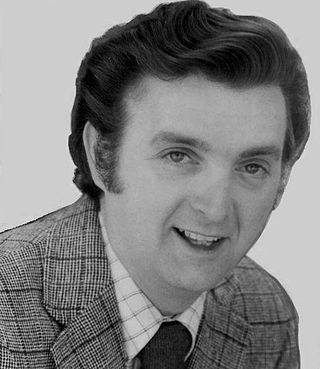
Dominic Frank Cossa was an American operatic lyric baritone particularly associated with the Italian and French repertoire.
Francis "Chip" Menotti is an actor and former figure skater who was the president and artistic director of Festival dei Due Mondi.

Christopher Keene was an American conductor.
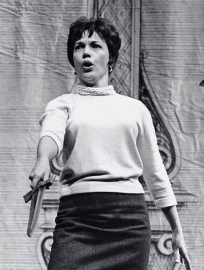
Beverly Wolff was an American mezzo-soprano who had an active career in concerts and operas from the early 1950s to the early 1980s. She performed a broad repertoire which encompassed operatic and concert works in many languages and from a variety of musical periods. She was a champion of new works, notably premiering compositions by Leonard Bernstein, Gian Carlo Menotti, Douglas Moore, and Ned Rorem among other American composers. She also performed in a number of rarely heard baroque operas by George Frideric Handel with the New York City Opera (NYCO), the Handel Society of New York, and at the Kennedy Center Handel Festivals.
Rosemary Kuhlmann was an American operatic mezzo-soprano and Broadway musical actress best known for originating the role of the Mother in Gian Carlo Menotti's Amahl and the Night Visitors, the first opera commissioned for television. Kuhlmann portrayed the role on the annual live NBC broadcast of the production from 1951 through 1962.
The Philadelphia Lyric Opera Company was an American opera company located in Philadelphia, Pennsylvania that was active between 1958 and 1974. The company was led by a number of Artistic Directors during its history, beginning with Aurelio Fabiani. Other notable Artistic Directors include Julius Rudel and Anton Guadagno (1966–1972). The company produced between four and six of their own operas every year in addition to sponsoring numerous traveling productions from the New York City Opera. In 1975 the company merged with the Philadelphia Grand Opera Company but retained its original name. With the combined resources of both companies, the Philadelphia Lyric Opera Company began producing higher quality productions with name artists such as Luciano Pavarotti, Joan Sutherland, Roberta Peters, Montserrat Montserrat Caballé, and others. For the bicentennial year 1976, the company commissioned famed opera composer Gian Carlo Menotti to create a new opera. The work, The Hero, premiered on June 1, 1976. In 1980, the company artistically reorganized to form the Opera Company of Philadelphia.

Amelia al ballo is a one-act opera buffa by Gian Carlo Menotti, who set his own Italian libretto. Composed during 1936 when Menotti was in his mid-twenties, it was the composer's first mature opera and first critical success. The opera recounts a series of farcical events as a young Italian socialite overcomes obstacles to her attendance at the first ball of the season.
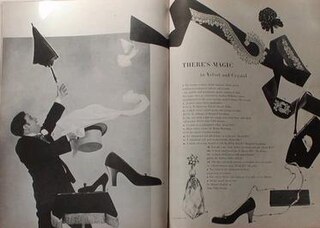
Andrew McKinley was an American operatic tenor, violinist, arts administrator, music educator, and school administrator. Although he mainly performed in the United States, he had an active international singing career with major opera companies and symphony orchestras from the 1940s through the 1960s. His repertoire spanned a wide range, from leading tenor parts to character roles.

Leon Lishner was an American operatic bass-baritone. He was particularly associated with the works of Gian Carlo Menotti, having created parts in the world premieres of four of his operas. He performed in many productions with the New York City Opera and the NBC Opera Theatre during the 1950s and early 1960s.

Martin's Lie is a chamber opera in one act with music and an English language libretto by Gian Carlo Menotti. Commissioned by CBS, it was Menotti's third opera for television after Amahl and the Night Visitors and Labyrinth. Although not initially conceived as a work for the stage, the opera premiered in a live theatrical performance on 3 June 1964 at the Bristol Cathedral for the opening of the 17th annual Bath International Music Festival. The opera was subsequently filmed with the same cast for television under the direction of Kirk Browning with Julie Andrews serving as host. The production used sets and costumes by designer Anthony Powell, and was broadcast nationally by CBS for the opera's United States television premiere on 30 May 1965.
Gloria Lane Krachmalnick was an American operatic mezzo-soprano who had an active international performance career from 1949 to 1976. In her early career she distinguished herself by creating roles in the world premieres of two operas by Gian Carlo Menotti, the Secretary of the Consulate in The Consul (1950) and Desideria in The Saint of Bleecker Street (1954); both roles which she performed in successful runs on Broadway and on international tours. For her performance in The Consul she was awarded a Clarence Derwent Award and two Donaldson Awards.

Gian Carlo Menotti was an Italian-American composer, librettist, director, and playwright who is primarily known for his output of 25 operas. Although he often referred to himself as an American composer, he kept his Italian citizenship. One of the most frequently performed opera composers of the 20th century, he wrote his most successful works in the 1940s and 1950s. Highly influenced by Giacomo Puccini and Modest Mussorgsky, Menotti further developed the verismo tradition of opera in the post-World War II era. Rejecting atonality and the aesthetic of the Second Viennese School, Menotti's music is characterized by expressive lyricism which carefully sets language to natural rhythms in ways that highlight textual meaning and underscore dramatic intent.
